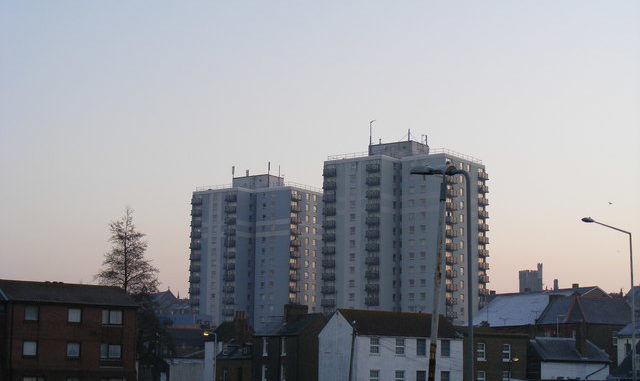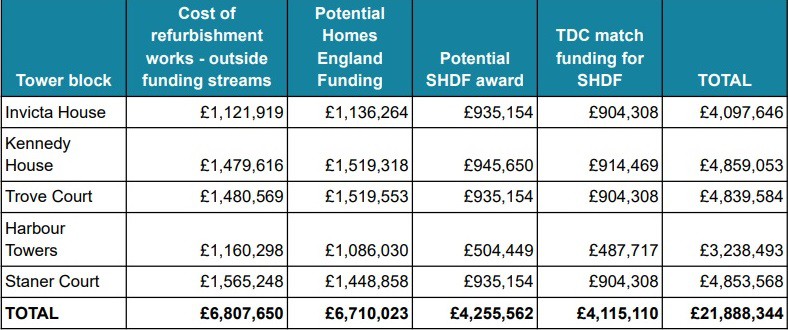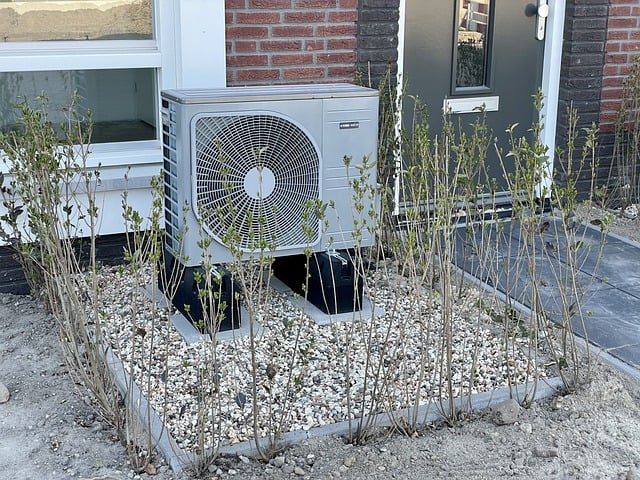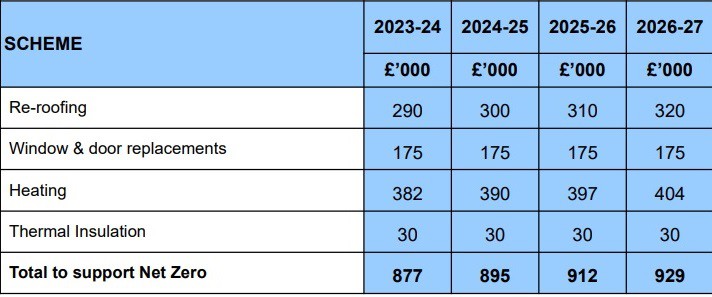
A £40million project to reduce the carbon footprint of Thanet council homes by carrying out works to improve ratings on Energy Performance Certificates (EPCs), improve insulation and install heat pump technology will be discussed by Thanet council Cabinet members next week.
The decarbonisation project is part of the council’s work to reach targets under The Climate Change Act, amended in 2019, which commits the UK to becoming ‘net zero’ by 2050.
The authority has £10 million for the works earmarked in its Housing Revenue Account but needs external funding to help pay for the programme for properties to be EPC grade C compliant by 2030 and net zero by 2050.
A bid has been submitted to the government’s 10 year Social Housing Decarbonisation Fund (SHDF) for £4.3million from its current round of grants.
If successful, Thanet council proposes to use the first lot of funding towards a £21.9m programme of capital works to five of the six council tower blocks in the district – Staner Court, Invicta House, Kennedy House, Trove Court and Harbour Towers.
Retrofit works form part of the larger programme which includes the replacement of the existing external wall Insulation, together with structural, fire safety and cyclical works. The external wall insulation has already secured grant funding from the government for pre-tender works and there is anticipated further funding to support the cost of replacement external wall insulation.
Works proposal
- £8.4m to deliver measures that will reduce carbon emissions to 406 homes -50% funded through SHDF and 50%by TDC.
- £6.7m to replace existing external wall insulation (EWI), funded by Homes England
- £6.8 Million for structural and refurbishment works, funded from the approved HRA capital programme.
The council also has £12.3 million earmarked for tower block works from 2022/23.
A TDC decarbonisation document says: “They are the worst performing properties in our housing stock. We need to carry out fire safety and structural works; and have obtained Homes England funding for the External Wall Insulation (EWI). They have suffered immensely from lack of investment over the last decade and require major and cyclical works to improve their standards.”

The work will be carried out from March 2023 with a completion date of June 2025. In the first year works will be at Trove Court, Kennedy House and Harbour Towers and the second year at Staner Court and Invicta House.
The authority will find out if the bid was successful in February 2023.
Energy performance project
The Government has committed to a £3.8 billion Social Housing Decarbonisation Fund (SHDF) over a 10-year period to improve the energy performance of social rented homes. As the government’s net zero target is legally binding, Thanet council has to carry out this work across the 3,068 homes it owns and manages.
Plans for decarbonisation include replacing carbon-emitting heat systems like gas and oil with clean heat alternatives like electric heat pumps and decarbonised heat networks.
But if these steps are taken on their own it would lead to higher energy costs and cold homes for many residents because Thanet council homes are currently too poorly insulated to be heated efficiently by low carbon technologies.
This means energy efficiency programmes are currently focused on items such as over-cladding, top-up insulation, new gas central heating, upgrading of existing central heating systems and condensing boiler replacements.
Fuel poverty

Thanet has 19.2% of homes facing fuel poverty (12,300 homes) based on figures for 2020.
Living in fuel poverty is defined as: ‘being on a lower income and living in a home which cannot be kept warm at reasonable cost.”
National Energy Action, the lead in UK fuel poverty analysis, estimates that due to the energy price rises and the reductions in household income, there has been an increase in fuel poverty of 50% and this will increase over the next two years.
Large parts of housing in the district were built in an era when coal was the primary source of heating, walls were of single brick construction, meaning older, draughty, inefficient homes that cost more to heat. The negative impact of Covid-19 and rising wholesale energy prices have not been factored into the current statistics.
The highest concentrations of fuel poverty are in the private sector and are found in the wards of Cliftonville West, Margate Central and East Cliff with excess cold concentrated in the Thanet Villages, Dane Valley and Central Harbour.
Energy efficient homes
Part of Thanet council’s plan is to raise the level of energy efficiency in homes. This is demonstrated in Energy Performance Certificate (EPC).
An EPC is a document which records how energy efficient a property is and what its environmental impact is. The property will be given a grade between A to G. ‘A’ indicates a high level of energy efficiency, while ‘G’ marks the property as poor in terms of energy efficiency
Government rules mean the minimum EPC rating is to be raised from E to C. The plan is to enforce this from 1 April 2025 for new tenancies, and from 1 April 2028 for existing tenancies.
According to council documents some 51,000 homes in Thanet are energy inefficient (EPC D or lower), of which 15,000 have very low energy performance of E F or G. The main heating type is gas, however 4,774 properties with low EPCs do not have gas and so have a combination of energy inefficiency and high fuel costs.
A third of the council’s 3,068 properties have no current EPC rating. The authority has a budget of £60,900 to get those EPCs during 2022/23.
Carbon savings
Thanet council documents say getting all homes across the district to EPC level C would be achieved mainly through fabric measures (such as insulation) and some low carbon technology solutions that are grant funded for low income homes on less than £31,000 income.
The document adds: “This would achieve a carbon saving of 873,827,449 (kgCO2). The average investment per home to achieve this would be £8,500, and 28,000 homes would have to spend £5,000 or less.
“To get all homes to net zero by 2050 would require a differing set of measures including greater low carbon technology and heating solutions.”
Thanet council has estimated the CO2 emissions of its housing stock amounts to 9,215 tonnes of CO2 per year. Current estimates show that around 57% of existing TDC properties will require investment for insulation.
Of the council’s newly built properties completed between 2019 – 2021, 98.8% were rated as EPC B, and 1.2% at EPC C.

Thanet council’s decarbonisation plan document says: “Significant changes are required on how we heat our homes for us to achieve decarbonisation of space heating.
“Electricity will heat the majority of our homes via heat pumps. At the moment, electricity is much more expensive than gas so heat pumps can cost more to run than gas boilers – even though heat pumps are more efficient.
“ Our residents do not have the luxury of affording higher bills that may yield lower carbon emissions and therefore, we must consider fuel poverty and reduce energy consumption for our residents.”

The UK government has committed to reducing greenhouse gas emissions by 78% compared to 1990 by 2035, and to becoming net zero carbon by 2050.
Home energy use contributes to around 21% of the UK’s total greenhouse gas emissions, and social housing to around 10% of this.
Thanet Cabinet members are expected to approve the proposals for decarbonising council properties when they meet on December 15.

